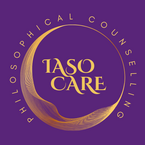What is Philosophical Counselling?
Philosophical counselling is a type of therapy that uses philosophical concepts and ideas to help individuals explore and understand their life's problems and struggles. It aims to assist individuals in gaining clarity about their values, beliefs, and goals and develop a more meaningful and fulfilling life.
Philosophical counselling can be traced back to the ancient Greek philosophers who believed that philosophy could be used to guide individuals in living a good life. It was later developed in the 20th century by thinkers such as Ludwig Wittgenstein, Martin Heidegger, and Søren Kierkegaard.
As a distinct form of psychotherapy, philosophical Counselling, while recognising psychopathological diagnoses and treatment protocols, focuses on the individual's unique perspective, lived experiences, and concerns. Philosophical counsellors work collaboratively with clients to help them explore their thoughts and feelings, clarify their values and goals, and develop practical solutions to their problems.
Some of the philosophical approaches commonly used in philosophical counselling include existentialism, phenomenology, and virtue ethics. Philosophical counsellors may also draw on other disciplines, such as literature, art, and religion, to help clients gain insight into their lives.
Philosophical counselling can be useful for individuals dealing with various issues, including relationship (interpersonal) problems, career concerns, existential crises, emotion dysregulation, attachment issues and personal growth. It is particularly beneficial for individuals who are seeking a non-judgmental, open-minded, and intellectually stimulating approach to therapy.
In the words of others
What Is Philosophical Counseling And How It Can Help You?
by Tomas Kucera
The aim of the philosophical counsellor is to philosophize together with the client, with the aim of producing a positive effect on his or her life
Thinking, Philosophy and Psychotherapy
by: Tra-ill Dowie
“The unexamined life is not worth living” (Plato, 1997). This line simultaneously sums up the practice of both psychotherapy and philosophy. Both practices are built upon self-reflection and self-knowledge.
How Does Phenomenological Counselling/Psychotherapy Help?
Phenomenological counselling is a therapeutic approach that focuses on an individual's subjective experience of the world, particularly their perception, thoughts, emotions, and actions. It aims to help individuals gain a deeper understanding of themselves, their experiences, and their relationships by exploring the meaning they attach to their experiences. This approach emphasises the importance of being present at the moment, focusing on the present rather than dwelling on the past or worrying about the future.
The fundamental principle of phenomenological counselling is the belief that individuals have the capacity to find their own solutions and answers to the problems they face. Rather than offering direct advice or solutions, the counsellor's role is to facilitate the client's self-exploration in a non-judgmental space.
Phenomenological counselling helps individuals in several ways, including:
- Developing self-awareness: By exploring their experiences, individuals become more aware of their thoughts, emotions, and behaviours. This self-awareness can lead to greater insight into one’s own motivations, values, and beliefs. Here, phenomenological counselling (PC) can integrate EFT (Emotion-Focused Therapy) interventions to facilitate emotional relationship exploration, resolution and transformation.
- Enhancing personal growth: Closely related to existential therapy, PC enables the client to gain a deeper understanding of themselves as individuals embedded in relationships. Tackling the fundamental questions of existence, meaning, and the human condition can result in a greater sense of self-acceptance, self-efficacy and positive life changes.
- Improving relationships: Phenomenological counselling can help individuals understand how their experiences and perceptions affect their relationships with others. This understanding can lead to developing greater empathy, improved communication and conflict-resolution skills.
- Coping with challenges: Emphasising Gestalt principles of here-and-now experience, awareness, and integration of all aspects of self, Phenomenological counselling, individuals can learn to better cope with challenges and difficult situations, leading to increased resilience, post-traumatic growth and emotional regulation.
